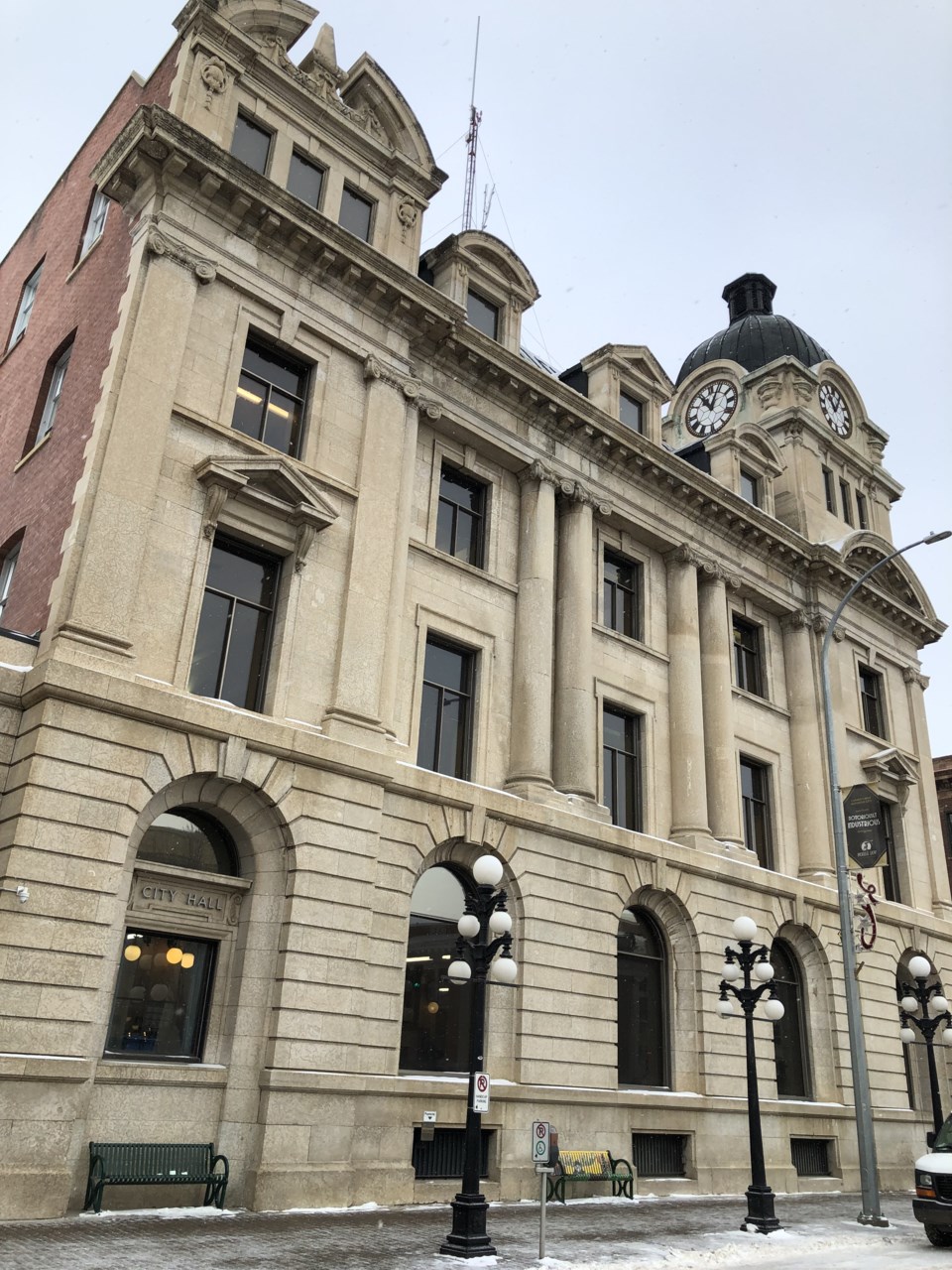MOOSE JAW — It took city hall nearly 40 days during the third quarter to resolve certain issues it received through its app, although some resolution times may have been “skewed” because of technical difficulties.
City administration presented a report during the Dec. 2 regular city council meeting about city hall’s activities from July 1 to Sept. 30. Councillors inquired about some information, including the average time it took staff to resolve concerns.
The report showed that, on average, it took city hall one day to address transit issues, 12 days for sewer problems, 16 days for street signs and traffic lights, 29 days for streets and roads, 30 days for capital projects, 37 days for sidewalks and 39 for trees.
Meanwhile, the top five issues were streets and roads (608 tickets), garbage (441), bylaw enforcement (272), trees (265) and recycling.
Coun. Dawn Luhning wondered if those resolution-time numbers were “skewed slightly” because of the situation where residents submitted ticket complaints and were informed the situations had been resolved when they hadn’t.
“I hope we can have a conversation around how we’re going to fix that piece of it. But my guess is those resolution times are skewed because … I know even a handful of them I had last week weren’t resolved when they’re saying they are,” she said.
Most departments do not indicate that a ticket issue has been resolved until staff finish addressing it, although there are some instances where complaints about issues like sidewalks are shown as resolved but were put on a work list, said city manager Maryse Carmichael.
“But I understand absolutely for the residents (that) it is not resolved, although the (request for service) indicates that,” she added. “So we are in the process of making a change.”
With those complaints and the average resolution times, the one piece that’s missing is a metric to measure residents’ satisfaction afterward, said Coun. Patrick Boyle.
Council may have to review that at budget time since there is a difference between how city hall resolves matters and what citizens see on the streets, he continued. While municipal officials may consider issues closed, residents may disagree.
Carmichael replied that city hall does not measure residents’ satisfaction other than through direct feedback that people provide afterward.
Requests for service
The Q3 report featured statistics about residents’ requests for service (RFS), with the category of “streets and roads” seeing 608 inquiries, Coun. Chris Warren said. By quarter’s end, crews had resolved 221 complaints and left 387 unresolved — a completion rate of roughly 36 per cent.
He then pointed back to the average resolution time stats, which showed that five categories required an average of 29 days or more to conclude. The councillor wondered whether such times were to fix the problem or to respond to citizens.
Most outstanding service requests are about road maintenance, and during the second and third quarters, city hall left those requests unresolved until crews completed them, said Bevan Harlton, director of operations. Many issues are about potholes and sidewalk deficiencies that crews have inspected but not rectified.
Warren said he understood that it might take an entire construction season to fill potholes since resources were limited. However, he wondered whether city hall had service-level standards for responding to residents’ concerns or informing them that the work had been completed.
Warren added that he experienced a situation where he submitted a service request and then waited several months to hear back, wondering whether his submission had been received and whether it was in a work queue.
City hall has 48 hours to confirm that it has received the inquiry after looking at it, while it is working to communicate about whether crews have done the work, responded Harlton. However, that is one limit to the current system.
City manager Maryse Carmichael said that changes could be coming in 2025 with how the city communicates with residents about their service requests, while the next goal is to develop metrics that analyze the service the city provides citizens.
The next regular council meeting is Monday, Dec. 16.




